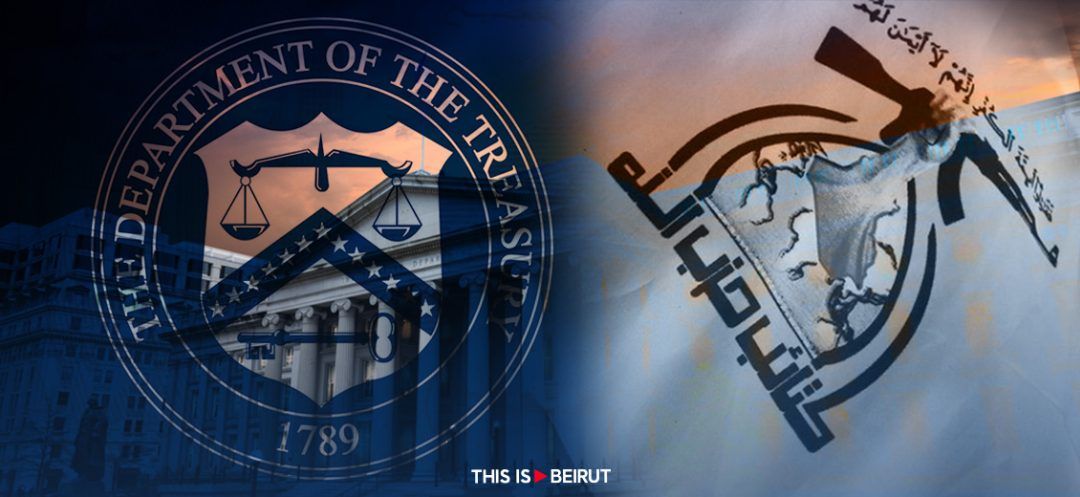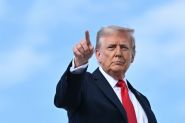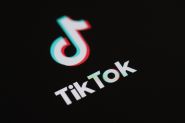- Home
- Middle East
- US Sanctions Iraqi Airline, Kataeb Hezbollah Leaders

The United States imposed sanctions on the Iraqi low-cost airline Fly Baghdad on Monday, citing its alleged support for Iran's Revolutionary Guards and proxies. The sanctions also targeted leaders of an Iraq militia with pro-Iranian affiliations.
The United States announced sanctions Monday on Iraqi low-cost airline Fly Baghdad, saying it provided assistance to Iran's Revolutionary Guards and proxies, while also targeting leaders of Kataeb Hezbollah, a pro-Iranian Iraq militia, with sanctions.
The moves come as Iraq's powerful pro-Iranian armed group Kataeb Hezbollah has "carried out a series of sharply escalating drone and missile attacks against US personnel in Iraq and Syria," said the US Treasury Department in a statement.
Kataeb Hezbollah and other Iran-aligned militia groups in Iraq "have consistently issued statements" supporting Hamas, while declaring "their commitment to attacking US personnel," the US Treasury said.
"Iran and its proxies have sought to abuse regional economies and use seemingly legitimate businesses as cover for funding and facilitating their attacks," said Treasury Under Secretary for Terrorism and Financial Intelligence Brian Nelson.
In a separate statement, the US State Department added that the Quds Force of Iran's Islamic Revolutionary Guard and Iran-aligned militia groups "pose a significant threat to the Middle East region."
In unveiling sanctions on Fly Baghdad and CEO Basheer Abdulkadhim Alwan al-Shabbani, the Treasury Department said the airline supported the Quds Force "by delivering material and personnel throughout the region," including weapons.
It added that since Hamas's attack in early October, Fly Baghdad "has been involved in the transfer of hundreds of Iraqi fighters" supporting Iranian proxies' attacks on Israel.
The latest sanctions target a senior Kataeb Hezbollah member and drone specialist, alongside a company allegedly used to launder money and the individual managing it.
Property of designated individuals in the United States is blocked and must be reported. Financial institutions and others are also restricted from engaging in transactions with sanctioned entities.
In November, Washington sanctioned six people affiliated with Kataeb Hezbollah, as well as the leader of another Iraq-based group it said was involved in attacks against US troops in the region.
Khalil Wakim, with AFP
The United States announced sanctions Monday on Iraqi low-cost airline Fly Baghdad, saying it provided assistance to Iran's Revolutionary Guards and proxies, while also targeting leaders of Kataeb Hezbollah, a pro-Iranian Iraq militia, with sanctions.
The moves come as Iraq's powerful pro-Iranian armed group Kataeb Hezbollah has "carried out a series of sharply escalating drone and missile attacks against US personnel in Iraq and Syria," said the US Treasury Department in a statement.
Kataeb Hezbollah and other Iran-aligned militia groups in Iraq "have consistently issued statements" supporting Hamas, while declaring "their commitment to attacking US personnel," the US Treasury said.
"Iran and its proxies have sought to abuse regional economies and use seemingly legitimate businesses as cover for funding and facilitating their attacks," said Treasury Under Secretary for Terrorism and Financial Intelligence Brian Nelson.
In a separate statement, the US State Department added that the Quds Force of Iran's Islamic Revolutionary Guard and Iran-aligned militia groups "pose a significant threat to the Middle East region."
In unveiling sanctions on Fly Baghdad and CEO Basheer Abdulkadhim Alwan al-Shabbani, the Treasury Department said the airline supported the Quds Force "by delivering material and personnel throughout the region," including weapons.
It added that since Hamas's attack in early October, Fly Baghdad "has been involved in the transfer of hundreds of Iraqi fighters" supporting Iranian proxies' attacks on Israel.
The latest sanctions target a senior Kataeb Hezbollah member and drone specialist, alongside a company allegedly used to launder money and the individual managing it.
Property of designated individuals in the United States is blocked and must be reported. Financial institutions and others are also restricted from engaging in transactions with sanctioned entities.
In November, Washington sanctioned six people affiliated with Kataeb Hezbollah, as well as the leader of another Iraq-based group it said was involved in attacks against US troops in the region.
Khalil Wakim, with AFP
Read more



Comments